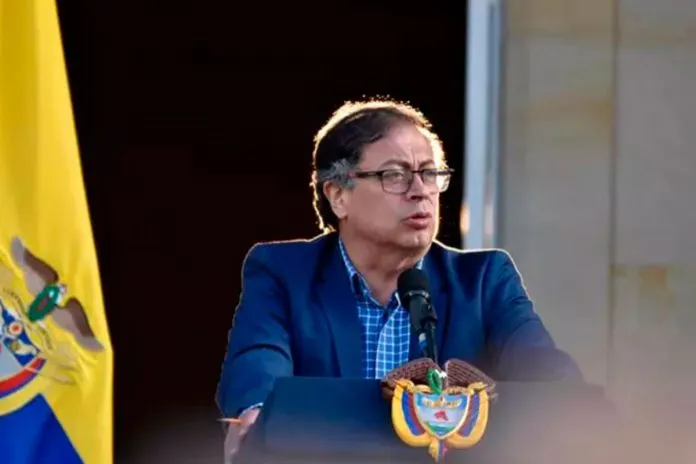Introduction
In the wake of the recent presidential election in Venezuela, where the incumbent Nicolás Maduro was proclaimed re-elected by the National Electoral Council (CNE), international responses have varied. Among the notable figures maintaining a notably low profile is Colombian President Gustavo Petro. Known for his outspoken views on foreign policy, Petro’s silence on the Venezuelan elections contrasts sharply with his usual approach. This article explores the implications of Petro’s muted response, the role of Colombia’s Foreign Ministry, and the broader context of regional diplomacy.
Context of the Venezuelan Elections
Overview of the Election Results
On the day following Venezuela’s presidential election, the CNE announced Nicolás Maduro as the victor. According to official figures, Maduro secured 51.2% of the vote. This result has been met with substantial contention, particularly from the opposition, which claims that the election process was marred by irregularities.
Opposition’s Claims
The opposition, led by candidate Edmundo González Urrutia and supported by María Corina Machado, alleges that the election results do not reflect the true outcome. They have collected over 40% of the electoral records, which they assert show González Urrutia winning 70% of the votes. This discrepancy has led to widespread protests across Venezuela, with demonstrators calling for a thorough recount and transparency.
Colombia’s Official Response
Foreign Ministry’s Position
In Colombia, the official stance on the Venezuelan elections has been communicated primarily through the Foreign Ministry. On Monday, Colombian Foreign Minister Luis Gilberto Murillo called for a complete and independent recount of the votes. His statements stressed the need for transparency and credibility in the electoral process to ensure the legitimacy of the results and maintain regional stability.
Key Statements from Luis Gilberto Murillo
Murillo’s public statements have emphasized the importance of verifying the electoral results. “We urge the swift and comprehensive counting of all votes, as well as independent verification and auditing. The results of such an important election must be as credible and legitimate as possible for the benefit of the region and especially the Venezuelan people,” Murillo stated on his social media platform.
Tras mantener contactos permanentes con todos los actores políticos involucrados en los comicios presidenciales que tuvieron lugar en la República Bolivariana de Venezuela y luego de conocer los resultados preliminares comunicados por el Consejo Nacional Electoral (CNE),…
ADVERTISING— Luis Gilberto Murillo (@LuisGMurillo) July 29, 2024
President Gustavo Petro’s Silence
In contrast to his usual practice of voicing strong opinions on international matters, President Gustavo Petro has remained notably silent regarding the Venezuelan elections. Petro, who has frequently used social media to make diplomatic statements and policy declarations, has only retweeted Murillo’s message without adding personal commentary.
Potential Reasons for Silence
Petro’s silence has raised questions and speculation. Some media outlets suggest that Colombia, along with Brazil, might be engaged in behind-the-scenes negotiations with Venezuela to facilitate a peaceful resolution to the political crisis. This potential diplomatic engagement aligns with Petro’s ambition to position himself as an international mediator in the Venezuelan conflict.
Role of the Colombian Foreign Ministry
The Foreign Ministry has been the primary channel for Colombia’s official communication on the Venezuelan elections. The Ministry’s statements reflect a cautious approach, emphasizing the need for transparency and avoiding direct involvement in the election dispute. This approach contrasts with Petro’s more typical, vocal international stance.
Broader Implications of Colombia’s Position
Impact on Regional Diplomacy
Colombia’s approach to the Venezuelan elections, marked by Murillo’s calls for transparency and Petro’s silence, underscores a diplomatic strategy aimed at balancing regional stability with non-intervention. By focusing on calls for a transparent process rather than taking a definitive stance on the election results, Colombia aims to maintain diplomatic relations while supporting peaceful conflict resolution.
Potential Negotiations with Venezuela
The possibility of Colombia negotiating with Venezuela behind the scenes reflects a strategic effort to influence the situation without overtly intervening. This approach allows Colombia to play a role in fostering dialogue and seeking solutions while avoiding direct criticism of the electoral process.
Challenges and Criticisms
Colombia’s diplomatic strategy faces challenges and criticisms. Critics argue that a more vocal stance could help pressure for greater transparency and accountability. Additionally, the silence of prominent leaders like Petro might be perceived as a lack of commitment to supporting democratic processes in neighboring countries.
Conclusion
President Gustavo Petro’s restrained response to the Venezuelan elections, coupled with the Foreign Ministry’s focus on transparency and peaceful resolution, highlights a nuanced diplomatic approach. While Petro’s silence may raise questions, it aligns with a broader strategy of promoting stability and negotiation in the region.
As Venezuela navigates its political crisis, the international community, including Colombia, plays a crucial role in supporting transparent processes and fostering peaceful resolutions. The balance between diplomatic engagement and direct intervention remains delicate, with significant implications for regional relations and democratic integrity.
For more insights and updates on Latin American affairs, visit our Latin America section on The Meridian Times.


